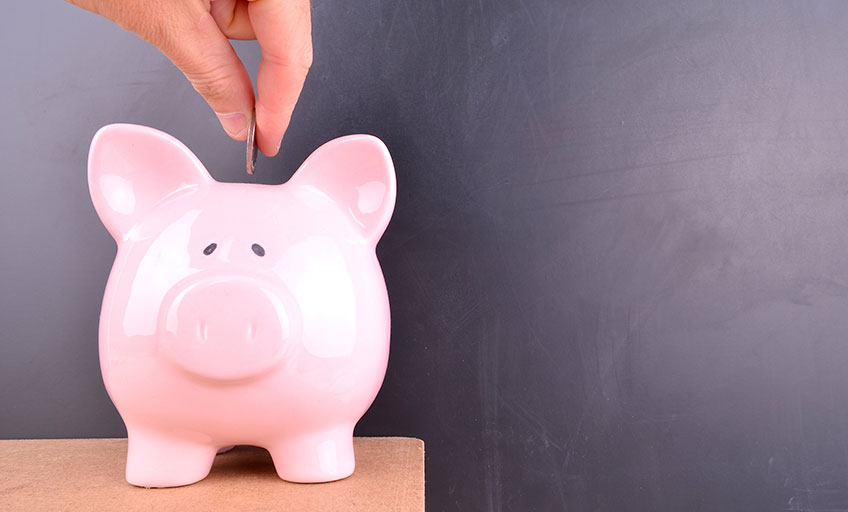Saving for a Down Payment
 If Sunday open houses and home style magazines and websites are exerting their allure, it may be time to seriously consider buying a home. It is, after all, the American dream. But it’s also a huge and serious commitment and, for most of us, it requires plenty of planning.
If Sunday open houses and home style magazines and websites are exerting their allure, it may be time to seriously consider buying a home. It is, after all, the American dream. But it’s also a huge and serious commitment and, for most of us, it requires plenty of planning.
The biggest hurdle for most first-time home buyers is the down payment. There are three questions you need to ask: How much will we need to save? How long do we have to save it? How will we save it?
Here are a few suggestions:
How much will we need? To answer the first question, we urge you to talk with your mortgage banker. By considering your assets and expenses, your loan officer will be able to give you a price range for homes you can afford. You will also learn about various loan options, from the standard 20 percent down to much lower down payments offered to a wide variety of qualifying buyers. Knowing, in general terms, your down payment amount, it’s then time to think about…
How long do we have? This depends, in part, on how much you already have saved toward your down payment. In most cases, saving will be a incremental, month-by-month process. The best way to figure out how long that will take is to create a budget that maps your expenses and all the possible ways you can save each month. (More on those below.) Be sure to include money for food, medical care, housing, child care, and other expenses. Whether you’re able to save $150 or $1500 each month, divide that amount into the total you need. That will tell you how many months you’ll have to save.
How will we save it? While “winning the lottery” may be your favorite answer, it’s far less reliable than some tried-and-true savings methods, such as:
- Automatically deduct a set percentage or dollar amount from every paycheck. (We recommend opening a dedicated interest-earning savings account for your down payment.)
- If you are carrying a credit card balance, pay it off or look for lower interest rates. (Talk with your mortgage banker before opening or closing credit card accounts.)
- Sell something. That unused exercise/sports equipment, boat, artwork, or piece of jewelry could translate into funds for your down payment.
- Do some extra work – a second job, some consulting, a little freelancing.
- Spend less. Think of all the places you could save money. Even if your lifestyle is not extravagant, you could probably shave a few dollars off restaurant meals, new shoes and clothing, or vacation spending. What if you carpooled or rode your bike to work/school one or more days a week?
- Earmark windfalls for your down payment savings. Not every year will deliver windfalls – refunds, bonuses, gifts, inheritance, lottery winnings (!) – but make a commitment that those funds will go directly into your new home savings plan.
- If you have student loans or automobile loans, see if you can refinance for a lower rate. Put the difference into your savings.
- Empty your pockets. At the end of each day, empty all your coins into a jar. Once a month, take the accumulated coins to the bank and deposit them in your savings account.
There are many other ways of saving toward your down payment, including borrowing money from your IRA or 401(k), but the risks can be substantial. Be sure to consult a financial advisor before taking that approach.
Better yet, talk with your mortgage banker about down payment assistance. Your dream home could be closer than you think!
